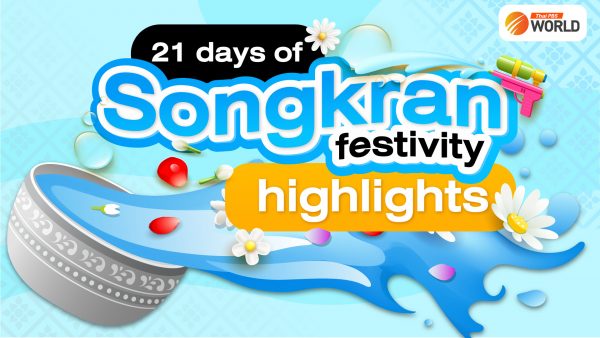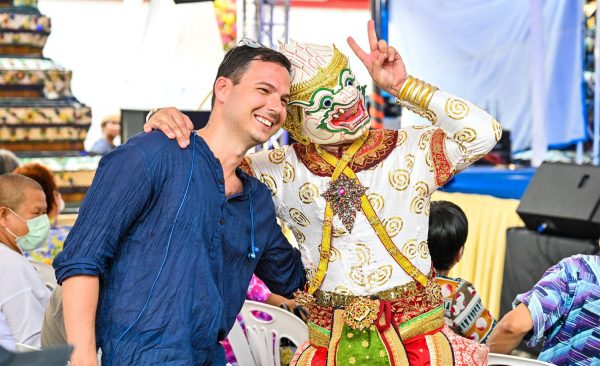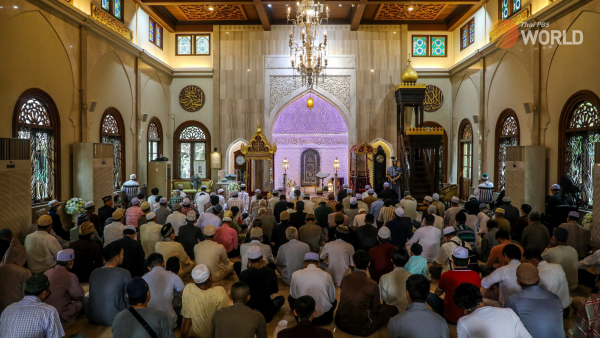Salty tap water needs urgent attention

Experts come up with a short-term fix and a long-term solution to the problem of salty tap water that looks set to become a permanent fixture
Residents of Bangkok are living in limbo. In addition to the persistent problem of fine particulate matter – the so-called PM.25 – air pollution that has adverse effects on health, salty public tap water is just adding, well, salt to the wound.
Residents living in the east of Bangkok have been hit hard by water salinity as the area depends on water from the Pathum Thani station, while the most of the west part of the city uses water sent from the Mae Klong Dam to the Maha Sawat tap water production plant in Nonthaburi’s Bang Kruai district.
According to the Metropolitan Waterworks Authority (MWA), an unusually early intrusion of seawater into its pumping station has threatened the production of tap water in urban areas. Salt water usually reaches the MWA’s Sam Lae pumping station in Muang district of Pathum Thai province – the station that feeds fresh water to the MWA’s tap water production plant in the eastern part of Bangkok.
The authority said the intrusion of seawater often resolves itself when the rainy season arrives usually in May or June.
Water salinity occasionally occurs. But now, it seems, the problem is becoming persistent.
The Bangkok Metropolitan Administration warned residents of Bangkok and nearby provinces against tap water consumption especially young children, the elderly, those with kidney and heart problems, high blood pressure and diabetes as saltwater intrusion had raised its salinity because of high tides. Salty water is bad for small pets and plants as well according to the warning. It sparked health panic among residents living in the affected areas.
However, the MWA stresses that the water is safe even though it might taste “unusual”. The elevated sodium levels in the water should not be a health concern for most people who drink it but may be for people with certain health problems who have been advised to exercise caution or avoid it.
A tiny historic town well worth a detour
Takua Pa, 25 kilometres northeast of Khao Lak and some other of Phang Nga’s best beaches, is an ideal stop for the traveller wanting to spend time away from sea, sand and sun. This tiny historic town dubbed “Takola” by ancient traders was an important trading post in the 15th Century when the Arabs and Indians scoured the Malay Peninsula in search of eaglewood, ivory and sappanwood.
Thiparadee Kongsuwan, a nutritionist at the Department of Health’s Bureau of Nutrition said salty tap water may add more sodium to our body but in a relatively small amount.
According to her, tap water normally contains 100-200 mg of sodium per litre. The WHO has set the daily intake of sodium at less than 2,000 mg per day.
Ms Thiparadee echoed the MWA’s statement on people with underlying medical conditions and who need to be on a sodium-restricted diet.
To deal with the problem, she suggested using a water filter, one with reverse osmosis (RO) technology that can purge sodium and its brackish taste. Reverse osmosis is a water purification technology that uses a semi-permeable membrane which filters water-soluble particles.
Or people can opt for drinking bottled water for the time being, she added.
Boiling water doesn’t help to get rid of the salinity, but only concentrates the salt content, Ms Thiparadee said.
She urged people to be more vigilant about consuming foods high in sodium, which is the chemical in salt. Foods high in sodium are seasoning, snacks, instant noodles, canned fish, fermented food, sausages, meat balls and chilli sauce.
When consumed in proper doses, salt can promote health and well-being, Ms Thiparadee said. She explained that our bodies need sodium to control fluid balance and regulate blood pressure. The compound also plays a major role in nerve and muscle function.
“We’re obsessed with salt. Despite warnings, we’re consuming too much of it. Our body needs just a small amount of sodium to work properly but too much of it can be bad for our health,” she said.
A diet high in salt is often the culprit behind hypertension, stroke and heart attack. It can put strain on the kidneys and lead to kidney disease; and contributes to fluid retention and bloating.
Ms Thiparadee cited a survey which revealed that Thai people consume about 10.8 gms of salt (or over 4,000 mgs of sodium a day) on average, twice the maximum daily intake recommended by the WHO. And a large amount of the sodium consumed by Thai people comes from seasonings that include fish sauce, soy sauce, salt, shrimp paste and oyster sauce, according to the study.
“Sodium is often found in food. Just limit the amount of salt you add to foods when cooking and at the table. Taste a dish first and ask yourself if it would be better with some salt,” she said.
She added we usually get sodium that is hiding in foods such as in the rice, meat, vegetables and fruits we consume. To keep healthy, we should not add more than 2,000 mg of sodium per day which equals one teaspoon of salt, or 3-4 teaspoons of soy sauce or 4-5 teaspoons of fish sauce.
Water salinity needs immediate attention
However, there is still much work to be done in order to solve the water salinity problem according to Assistant Professor Sitang Pilailar of the Water Resources Engineering Department at the Faculty of Engineering of Kasetsart University.
According to a report by the Thai PBS, the academic said it’s the MWA, not consumers nor the Royal Irrigation Department responsible for allocating water usage for agriculture, who bears the burden of the brackish water.
Many affected households have reportedly invested in water filters with RO technology (prices range from thousands to ten thousand baht per unit) in order to filter tap water for drinking. Those who find the taste unbearable need to purchase bottled drinking water.
Assist Pro Sitang said the MWA doesn’t have an effective water management plan, urging the authority to invest in a facility to store freshwater for tap water production. The facility can be used for storing water when the Chao Phraya River floods and to dilute the salinity when the tide is high.
She has called on the government to take the problem seriously and urged the National Water Command Centre which is chaired by Deputy Prime Minister General Prawit Wongsuwon and water agencies to put their heads together and come up with a workable solution in order to ensure that the public has access to clean, saline-free tap water all year round.






